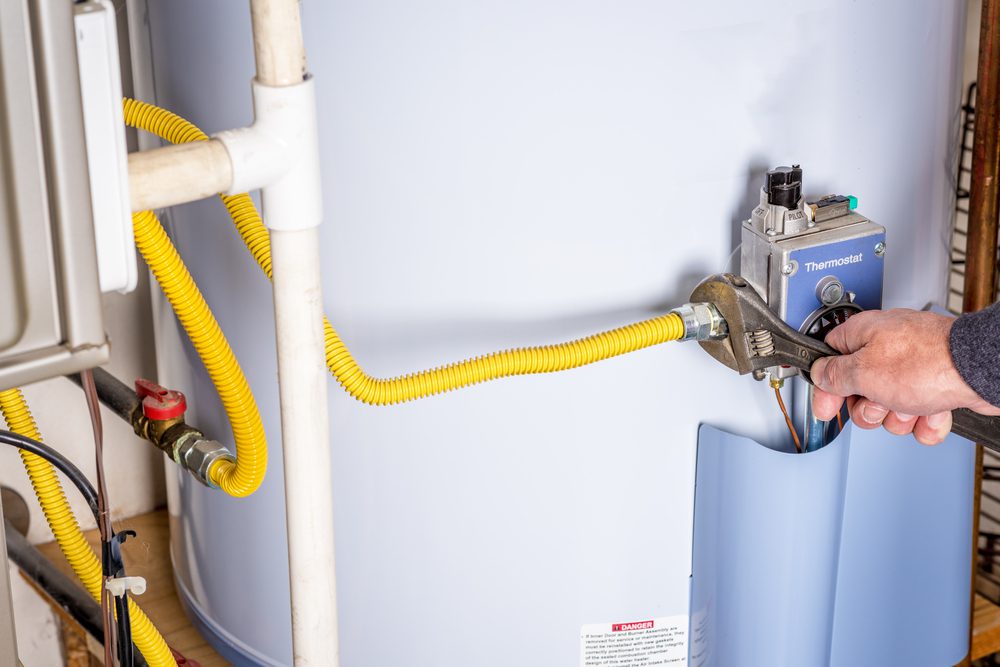Exploring Guide To Of Water Heater Issues
Exploring Guide To Of Water Heater Issues
Blog Article
Right here below you'll find a bunch of sensible information and facts pertaining to Water Heaters Problems.

Envision beginning your day without your regular hot shower. That already sets an inadequate tone for the remainder of your day.
Every residence requires a dependable water heater, however just a couple of know how to handle one. One simple means to maintain your water heater in top form is to look for mistakes on a regular basis as well as repair them as quickly as they show up.
Remember to turn off your water heater before smelling about for faults. These are the hot water heater faults you are most likely to encounter.
Water too warm or also cold
Every hot water heater has a thermostat that determines exactly how warm the water obtains. If the water entering into your house is too hot in spite of establishing a hassle-free optimum temperature level, your thermostat might be faulty.
On the other hand, too cold water may result from a fallen short thermostat, a busted circuit, or inappropriate gas circulation. For instance, if you utilize a gas water heater with a broken pilot light, you would certainly get cold water, even if the thermostat remains in best condition. For electric heating systems, a blown fuse might be the offender.
Insufficient hot water
Hot water heater come in several sizes, depending on your warm water demands. If you lack hot water prior to every person has had a bath, your hot water heater is too little for your family size. You need to consider setting up a bigger hot water heater container or opting for a tankless water heater, which uses up less room and also is extra durable.
Strange noises
There go to the very least five kinds of noises you can learn through a hot water heater, but the most typical analysis is that it's time for the hot water heater to retire.
First of all, you ought to know with the regular appears a hot water heater makes. An electric heating unit may seem different from a gas-powered one.
Popping or banging sounds usually mean there is a piece of debris in your storage tanks, as well as it's time to clean it out. On the other hand, whistling or hissing sounds might just be your valves allowing some stress off.
Water leaks
Leakages might come from pipelines, water connections, shutoffs, or in the worst-case situation, the tank itself. With time, water will wear away the storage tank, and also discover its escape. If this occurs, you require to replace your hot water heater as soon as possible.
Nonetheless, before your modification your entire tank, make sure that all pipes remain in place and that each shutoff works completely. If you still require help determining a leakage, call your plumber.
Rust-colored water
Rust-colored water means one of your hot water heater components is corroded. It could be the anode rod, or the tank itself. Your plumber will be able to identify which it is.
Lukewarm water
Despite just how high you established the thermostat, you will not get any type of hot water out of a heating unit well past its prime. A water heater's efficiency may lower with time.
You will certainly likewise get warm water if your pipelines have a cross link. This means that when you turn on a tap, hot water from the heating system streams in together with regular, cold water. A cross link is simple to spot. If your warm water faucets still pursue shutting the water heater shutoffs, you have a cross connection.
Discoloured Water
Corrosion is a major cause of filthy or discoloured water. Corrosion within the water storage tank or a failing anode rod can cause this discolouration. The anode rod shields the tank from rusting on the within and need to be checked annual. Without a rod or an appropriately functioning anode rod, the warm water quickly rusts inside the container. Contact a professional hot water heater technician to identify if changing the anode rod will take care of the trouble; otherwise, change your hot water heater.
Conclusion
Ideally, your water heater can last 10 years before you require a modification. Nonetheless, after the 10-year mark, you might experience any one of these mistakes extra routinely. At this point, you should add a new water heater to your budget.
How To Troubleshoot 3 Common Water Heater Problems in Twin Cities
The Water Heater Is Leaking
A leaky cold water inlet valve A loose pipe fitting A leaky temperature and pressure relief valve A corroded anode rod A cracked tank Turn Off Your Water Heater:
Shut off your gas water heater by turning the gas valve on the unit to the “OFF” position. Shut off your electric water by switching its power off at your electrical panel. Look for a two-pole breaker labeled “water heater” and turn it to the “OFF” position. Move the ball valve connected to the water heater to be perpendicular to the piping at a 90° angle. Look for the Leak:
Depending on whether the water is coming from the tank's top or bottom, you’ll want to look for the leak in different locations.
If the leak comes from the top of the tank, carefully look for water escaping from the cold water inlet valve or loose pipe fittings. Rusted hot and cold water valves can have loose connections with the tank, with water leaking out of them.
https://mspplumbingheatingair.com/blog/how-to-troubleshoot-3-common-water-heater-problems
I ran across that piece on Common Problems with Your Home Water Heater when scouting around the internet. Be sure to take the opportunity to distribute this content if you enjoyed it. Thank you for your time. Visit again soon.
Trusted help? Ring now. Report this page